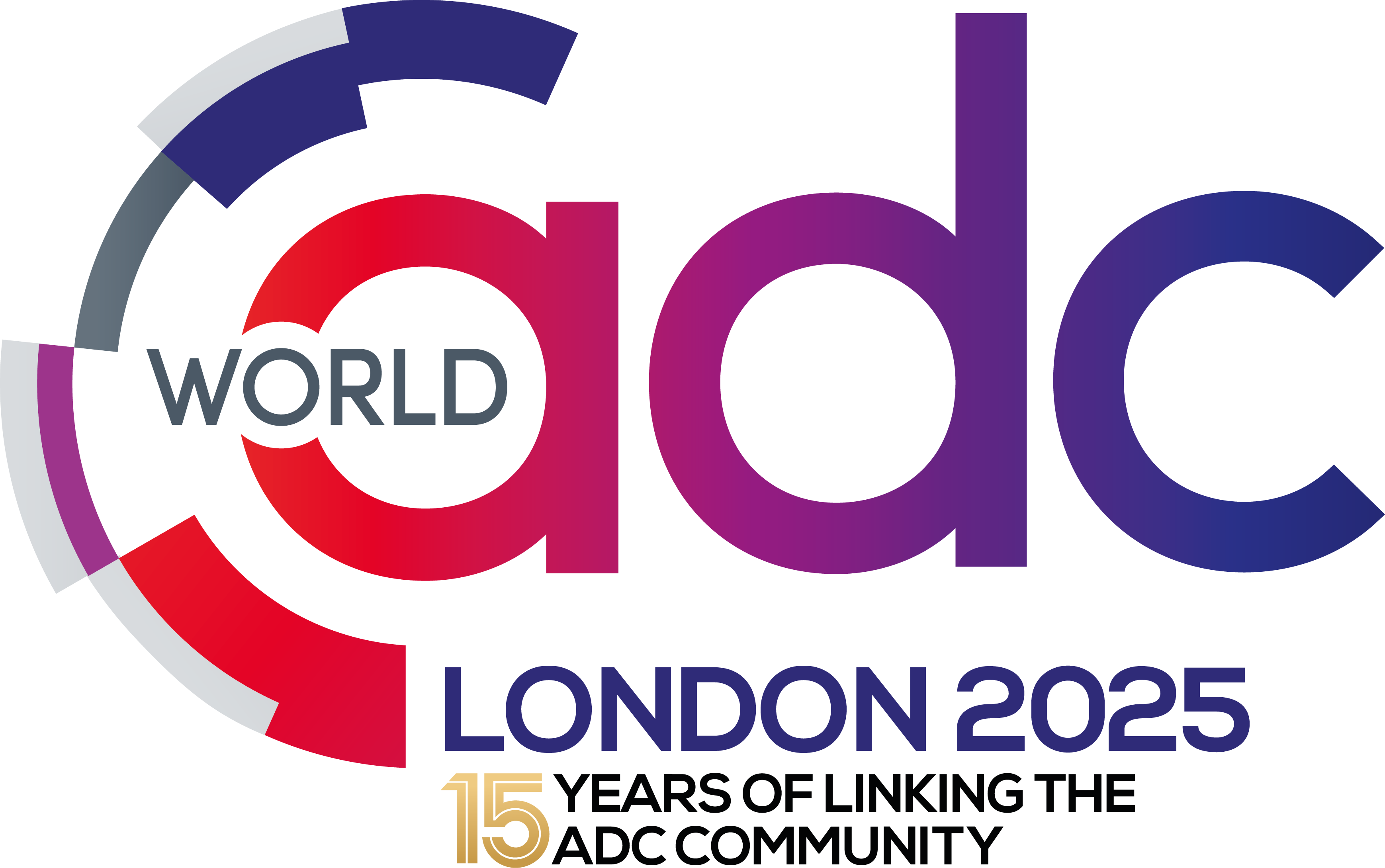Post-Conference Workshop Day
Thursday 6th March, 2025
Workshops Designed for Beginners in the ADC Field
Workshops Designed for Everyone in the ADC Field
Exclusively designed for attendees brand-new to the ADC space or those keen to expand their knowledge into novel areas of development. These deep-diving, three-hour collaborative sessions will cover ADC payload chemistry and mechanism innovation, novel ADC target discovery and validation, applications of ADCs outside of oncology, and how to optimise preclinical development to predict ADC clinical performance.
Applicable sessions for peers in all levels of ADC experience. Zoom into key questions regarding ADC payload-target pairing to maximise clinical performance, approaching precision medicine ADC development, improving product quality through site-specific ADC conjugation, and discussing best practices for ADC scale-up.
9.00 - Morning Sessions
Workshop A
Workshop B
Workshop C
Workshop D
Analysing Chemistry & Properties of ADC Payloads: Understanding Mechanism of Action, Tackling Resistance & Exploring
Future Directions
As the first stage of bringing an ADC concept to life, staying on top of the innovation, novel trends and challenges at the forefront of payload discovery is vital to optimise your ADC design and performance.
Join this workshop session to enhance your understanding of the fundamental principles of different ADC payload mechanisms of action, with a special lens on novel and less cytotoxic payloads employed to tackle patient resistance mechanisms.
Workshop highlights include:
• Overviewing the different classes of linker payload technologies employed for ADCs
• Exploring novel payload mechanisms to help combat resistance in oncology patients
• Contextualising the industry’s exploration of less and non-cytotoxic payloads: what progress has been made and what is yet to be demonstrated?
Paul Wolstenholme-Hogg, Vice President, Medicinal Chemistry, ADC Therapeutics
Jutta Deckert, Vice President, Research & Development, Iksuda Therapeutics
Aislyn Boran, Senior Director, Translational Strategy, Daiichi Sankyo
Integrated ADC Development from Gene to IND & Beyond: Part 1
This workshop provides a one-day opportunity to learn and discuss the important aspects in the integrated CMC and non-clinical development of ADCs. As transitioning a new molecule through to the clinic is a complex venture requiring investment and an integrated approach, get the necessary insights to support you in getting to the first dose-in-man stage and beyond.
This session is designed to match the interests of new and established C-level ADC developers. The workshop will also be of
interest to CMC and non-clinical leads new to the ADC field.
Morning workshop highlights:
• Introducing programme integration for ADCs
• Streamlined CMC technical development – discussing the planning and needed CMC activities
• Breaking down CMC control strategy and product characterisation, purity and impurity
• Addressing contract manufacture of ADCs
Gordon Rigg, Principal Consultant, Apex Biologics Consulting
Simon Chivers, Managing Director & Independent Consultant, Integrated Biologix
Tackling ADC Toxicity & Translational Mismatch: Optimising Model Selection & Non-Clinical Studies to Smoothen Translation to the Clinic
Despite its raging success in oncology, translational barriers still plague ADC development, with preclinical activity not matching early clinical safety and efficacy readouts.
Join this workshop to best understand preclinical development and the rationale to effectively characterise ADC safety and efficacy, thus minimising the mismatch once you enter clinical investigation.
Workshop highlights include:
• Breaking down translational considerations to derive ADC tolerability and therapeutic index in the clinic
• Balancing ADC efficacy and safety to widen the therapeutic index
• Gleaning comprehensive insights from in vivo and in vitro investigation to best predict clinical toxicities
• Exploring toxicity mitigation strategies for ADCs in the clinic
Rakesh Dixit, President & Chief Executive Officer, Bionavigen Oncology
Using Computational Approaches for Early-Stage Design & Late-Stage Development of Antibody-Drug Conjugates
The use of AI, machine learning, and computational approaches provides a powerful opportunity to predict ADC properties and
behaviour, especially against mismatched readouts between preclinical models and clinical trials.
Don’t miss this workshop investigating the implementation of simulators to predict how ADC design influences efficacy.
Workshop highlights include:
• Exploring the multiscale mechanisms of ADC distribution, from subcellular to cellular, tissue, organ, and systemic biodistribution
• Discussing the (sometimes) counterintuitive results of ADC efficacy in animals and the clinic
• Reviewing the practical implementation of an ADC simulator to predict how ADC design impacts efficacy
Greg Thurber, Associate Professor & Chair, Graduate Education, University of Michigan
12:00 pm Lunch & Networking
Workshops Designed for Beginners in the ADC Field
Workshops Designed for Everyone in the ADC Field
1.00 - Afternoon Sessions
Workshop E
Workshop F
Workshop G
Workshop H
ADC Target Investigation: Keeping Up to Date With Cutting-Edge Anti-Tumour Target Discovery & Validation
Maintaining awareness of the hottest antitumour targets is fundamental for anyone looking to expand their ADC pipeline and innovation.
Join this workshop to unveil the desirable characteristics for ADC targets, discover the cutting-edge tools to probe cell surface tumour targets, and debate the risk vs. reward opportunities of going after first-in-class ADC development.
Workshop highlights include:
• Dissecting the desired characteristics for “clean” ADC targets
• Exploring successes and challenges with emerging anti-tumour ADC targets
• Weighing up risk vs. opportunity for potential first-in-class therapeutics
• Leveraging bioinformatics and omics technologies to screen and identify novel ADC targets
Kati Räsänen, Independent Consultant
Michaela Blomquist, PhD Student, Biotech Research & Innovation Centre, University of Copenhagen
Pinar Cakilkaya, Postdoctoral Researcher, Biotech Research & Innovation Centre, University of Copenhagen
Integrated ADC Development from Gene to IND & Beyond: Part 2
Continue the learnings and discussion from Workshop B, addressing the important aspects in the integrated CMC and non-clinical
development of ADCs. As transitioning a new molecule through to the clinic is a complex venture requiring investment and an integrated approach, additional insights will be shared to support you in getting to the first dose-in-man stage and beyond.
This session is designed to match the interests of new and established C-level ADC developers. The workshop will also be of interest to CMC and non-clinical leads new to the ADC field.
Afternoon workshop highlights:
• Delving into IND enabling non-clinical strategy across: bioanalytical strategy, what studies do you need to and determining a safe but meaningful starting dose
• Transitioning to non-clinical strategy post- IND: what additional studies do you need to do?
• Explaining topics for Health Authority Meetings
• Contextualising CMC and non-clinical aspects of the IMPD/IND dossier
Gordon Rigg, Principal Consultant, Apex Biologics Consulting
Simon Chivers, Managing Director & Independent Consultant, Integrated Biologix
Pairing the Right Payload With the Right Target: What are the ADC Design Factors to Consider to Maximise ADC’s Therapeutic Index?
More and more, ADCs containing different payloads and linkers are being developed to tackle different targets, understanding their design becomes crucial to set up your therapy for success. Particularly, how different designs and synergistic components play through to clinic development.
Join this workshop to contextualise the performance of different ADC designs and understand what makes a clinically effective ADC.
Workshop highlights include:
• Breaking down the different classes of ADC payload mechanisms and safety profiles to match with the best tumour targets
• Analysing ADC design from blockbuster and clinically successful ADCs: what are the design contributions impacting successful safety and efficacy performance?
• Discussing case studies to showcase how different designs may impact successful safety and efficacy performance
Heidi Wang, Chief Executive Officer, OBI Pharma
Ming-Tain Lai, Chief Scientific Officer, OBI Pharma
David Huang, Head, Medicinal Chemistry, OBI Pharma
Exploring the Cutting Edge of ADC Payload & Novel Conjugate Development in Oncology & Beyond
With classical ADC therapies demonstrating sustained clinical success and reshaping the standard of oncology care, eyes are turning towards up-and-coming novel conjugate with non-cytotoxic payloads and novel targeting moieties compared to tried and tested ADCs.
Don’t miss this session delving into the challenges and opportunities of ISAC and noncytotoxic ADC development, alongside nonantibody conjugates including PDCs and beyond.
Workshop highlights include:
• Contextualising industry’s exploration of less and non-cytotoxic payloads: what progress has been made and what is yet to be demonstrated across DACs and ISACs?
• How do novel conjugate development and properties differ from classical antibody-based conjugates?
• Delving into early ADC development into indications beyond oncology: autoimmune diseases, immunology, and antiviral and antibacterial applications
Lenka Sadilkova, Director Non-clinical Projects, Mablink Bioscience, an Eli Lilly Subsidiary
Hendrik Gruß, Director, Chemistry, Heidelberg Pharma
Greg Adams, Independent Consultant



